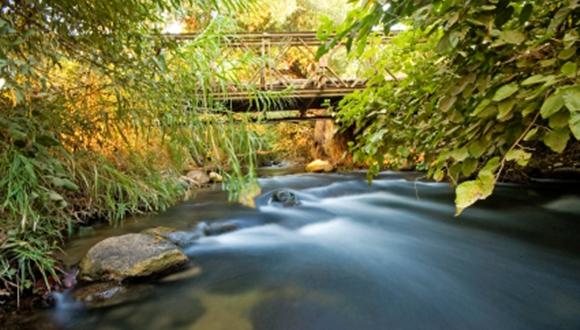Restoration of Water to Nature by Corrective Water Management and Its Ecological Impacts: Application to The "Slope Springs" of the Western Golan Heights
Student: Itai Perry
Advisors: Prof. Avital Gazith and Dr. Alon Rimmer
Student: Itai Perry
Advisors: Prof. Avital Gazith and Dr. Alon Rimmer
At present and in the near future, before desalination becomes an available and common technology, fresh water remains a limited resource in various parts of the world. Israel presently (2009) experiences the worst water shortage ever, unless the coming years will be particularly rainy, this water crisis is expected to last for at least 5 years until enough freshwater will be produced. This grave water shortage reflects on a long lasting and worsening competition for this limited resource in Israel. Population growth and rapid development increases the competition for water, with Nature being the last sector on the list for water allocation in Israel. The state of a series of springs on the western slopes of the Golan Heights, bordering the Hula valley (the slope springs) is an example of the conflict existing between the need to supply water for human uses (mainly irrigation) and the need to protect and conserve the natural assets of the springs. Intensive abstraction of water mainly in summer results in early drying of some of the springs.
The Goal of the study is to suggest alternative approach of water allocation which abstracts less water from the sources. The research's hypothesis was that diversion of water from the "slope springs" decreases flow and affecting habitat availability and structure. Thus it is likely to reduce species richness and affect community composition. Protection of the structure and function of the springs and their plant and animal diversity requires reduction of water abstraction for human use. The research used WEAP (Water Evaluation and planning) model for analyzing present water management in the region. This model presents water sources and consumption on a monthly resolution. In conclusion, perennial flows and high water quality make the ''slope springs" unique and rare ecological ecosystems in the Israeli reality. Having relatively small discharges and narrow channels make these springs highly sensitive to hydrological changes. Under extreme water resource limitation coexistence of man and nature calls for far-sighted water management programs in which realization of nature's rights is viewed as a mean for protecting of ecosystem services. It should be pointed out that "slope springs" are major sites of attraction for the public. Optimization of the policy requires better understanding of the relationship between the hydrological regime and the ecological responses of the "slope springs".




